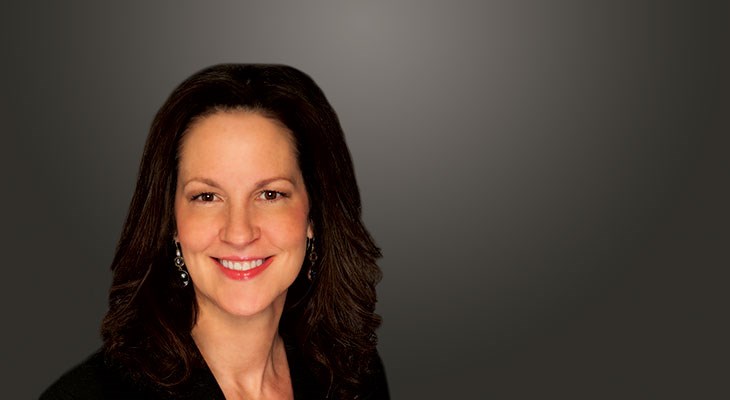Independent sponsors are a growing part of the M&A landscape, and Detroit’s Huron Capital is taking advantage of the deal opportunities they provide, says Gretchen Perkins, business development partner.
“It's an executive or a team of people who have found a company and are either at an indication of interest stage or sometimes they've already signed a letter of intent with a business owner to acquire the business,” Perkins says. “But they don't have a committed fund. They come to people like us and say, ‘Hey, we've got this transaction. We need capital.’
“We actively market to independent sponsors because they find deals we don't,” she adds.
Perkins has more than 30 years of experience in the finance and business development sectors, serving a variety of capital market participants. She is responsible for managing Huron’s business development and investment sourcing activities. Making connections to put deals together is what fuels her spirit.
We spoke with Perkins about the evolution of dealmaking from IPOs to more creative transaction structures such as using independent sponsors and the role private equity continues to play in the economy.
An evolving model
There was a time when the goal for most entrepreneurs was to build a successful company and take it public.
“That is how they would get compensated for their years of sweat equity,” Perkins says. “That capital source has dried up because of regulatory action at the federal level. Sarbanes-Oxley occurred [in 2002] and made it very expensive and very difficult for middle-market companies to afford the staff that it took to be a public company.”
And so began the rise of private equity as an attractive source of capital for business owners looking to grow. That worked well until 2010, when Dodd-Frank was approved.
“If you have over $150 million in assets, there's all sorts of things we have to do now and comply with and report on, which caused all of us to increase our staffing in finance and administration to be compliant,” Perkins says. “It just becomes a lot less fun and a lot more painful and more expensive to be a private equity firm. You start seeing PE firms wind down and those partners in the PE firms start operating as independent sponsors. They're finding companies, they are financing them and helping them grow.”
The result is a shift in how PE firms approach their work, at least at Huron Capital. This effort to identify individuals or entities who are looking to make a deal, whether it’s an independent sponsor, a boutique investment banker or an attorney or accountant with connections, does take considerable energy.
“We believe it's a boots-on-the-ground effort,” Perkins says, noting her recent trip to Chicago where she scheduled 17 meetings in two days. “I would say the vast majority of our deals are sourced based upon our purposeful, disciplined marketing activities which are driven by a 50-page marketing plan we do every year. Leading our deal sourcing team requires me to be out in front of people and at conferences and calling on people all the time. That's the bulk of my job and I derive energy from other people.”
Buy and build
A related strategy that involves identifying potential deal partners is the buy-and-build approach.
“We do platform acquisitions and then we're doing multiple add-on acquisitions to each of our platform companies in the years that we own it,” Perkins says. “For instance, in 2018, we closed four platform acquisitions and 12 add-ons across the portfolio. We have already completed 10 or 11 add on acquisitions in 2019.”
Huron Capital looks to partner with talented or experienced executives in a particular sector as a means to do a consolidation strategy and buy companies in that space.
“There's no deal at hand when we start,” Perkins says. “We just have a thesis, a white paper and a lot of research and decide we want to buy companies in this sector. We have an executive come to us with an idea and validate his or her thesis or we come up with the idea and we go find the executive. Together, we formally commit to each other to go spend the next 12 to 24 months buying the platform company for that initiative.”
Currently, Perkins is looking for an initial platform acquisition in the adhesives and sealants sector.
“So we have an experienced executive in that space and we've been at it for about a year, but it can take 24 months to find that first transaction,” Perkins says. “Once you find that platform transaction, the add-on transactions follow very quickly and we do multiples of add-on acquisitions for these strategies. So we think add-on acquisitions, the buy-and-build strategy, is a very solid way of generating shareholder value in a low GDP economy.”
Private equity, which has traditionally been supported largely by pension funds and college endowment funds, is obviously not going away and continues to flourish in many respects. Perkins’ hope is that Huron Capital, through its evolution in how it does business, can change the negative perception that still persists in some circles about private equity.
“If we hold a company for four to six years and then it’s time to exit, some people refer to that as flipping,” Perkins says. “It’s not flipping. We held it for four to six years. Our goal is always to sell it for an obscene amount of money. Because 80% of that obscene amount of profit goes to the pensions, the college endowments, the nurse and the teacher. I'm frankly very proud to be in an industry that helps ensure a safe and secure retirement for retirees. I'm proud to be able to help kids who weren't born wealthy be able to go to college. That is really what the private equity industry does.”




